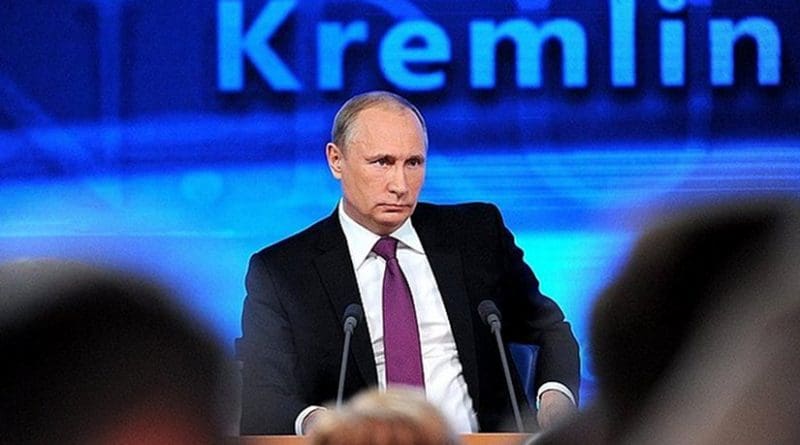The Bear In The Neighborhood: Comments From Experts On Russia Policy – OpEd
Is Russia an existential threat to the West? Is it just another geopolitical adversary? The answer to this question can determine Western action and Western goals. If we consider the Second World War definition of the West, which is limited to Western Europe and North America, policy prescription will be radically different than when one compares an ever expanding NATO and EU. This is important, and has been a major factor in punditry’s analysis of US President Donald Trump’s meeting Russian President Vladimir Putin at the Hamburg G20, at a time of extreme global turmoil.
What we know so far is that there has been external interference in the US presidential election, by cyber attacks, originating from Russian mainland. That’s the US joint Intel assessment. Although the assessment claims that the cyber attack was ordered by Vladimir Putin, no public evidence was forwarded to corroborate that claim, and it is all classified. Nor is there any evidence of any active collusion between Russian intelligence and Trump campaign, yet, nor any clear indication of whether Russian interference decisively tilted the vote count.
Reporting continues to attempt to flesh out details, as investigations continue. Last week the Wall Street Journal reported last week that a Republican operative, Peter Smith, who claimed to have had communications with former Trump official advisor Michael Flynn, was actively seeking Clinton emails from hackers. Matt Tait, a cybersecurity professional who was a source for the Journal‘s reporting, wrote that he was contacted by Smith, who represented himself as working with the Trump campaign, to verify emails he said he had received on the dark web.
Whatever else turns out, Russia is still a geopolitical adversary of the United States and Europe. It is imperative for countries to have a clear coherent grand strategy and one based on a clear understanding of the issues. In light of that, we asked three International Relations experts, two from US, one from UK, on how should the West deal with Russia.
Here’s what they said.
Richard Betts (Director of the International Security Policy program in the School of International and Public Affairs at Columbia University):
“The most important question is how to strike the balance between two opposing goals. One is to buttress NATO and make clear that the newest members in the Baltic States will be protected against Russian attack. The other is to de-escalate tension between the United States and Russia and reach a mutually acceptable understanding about Russia’s security interests and influence in its border areas. Old fashioned diplomacy could work this delicate balance out, but modern democratic politics makes it hard to use the secrecy, subtlety, and compromises that may be necessary.”
Andrew Bacevich (Professor Emeritus of International Relations and History at Boston University):
“Among both Europeans and Americans there is a tendency to exaggerate the current Russian threat. That threat is real, but quite modest. Russia is a declining power. Putin is not Stalin. So the most important issue facing the West with regard to Russia is to see that nation for what it is, a precondition for keeping the Russia “problem” in perspective. It is certainly the case that the United States faces problems of far greater significance than dealing with Russia. East Asian security, climate change, and our own domestic cohesion are three examples. The United States needs to keep its priorities straight. In that regard, Russia qualifies at best as a second-order concern.”
Matthew Rendall (Lecturer in Politics and International Relations at the University of Nottingham):
“The priority should be reduce the risk of accidental nuclear war. US and Russian missiles remain on high alert, which means that if one side receives warning of an incoming attack, it could quickly launch in response. False warnings occurred a number of times during the Cold War, and again in 1995, when Russia mistook a US research rocket for a possible attack. Though this never led to war, neither country was led by the ignorant and impetuous fool who now enjoys sole authority to launch the US arsenal. Even if negotiations produced no agreement, they might at least sensitize Trump to the risks. With poor short-term prospects for co-operation on most other questions, not stumbling into Armageddon is one area in which the sides have a clear mutual interest.”

